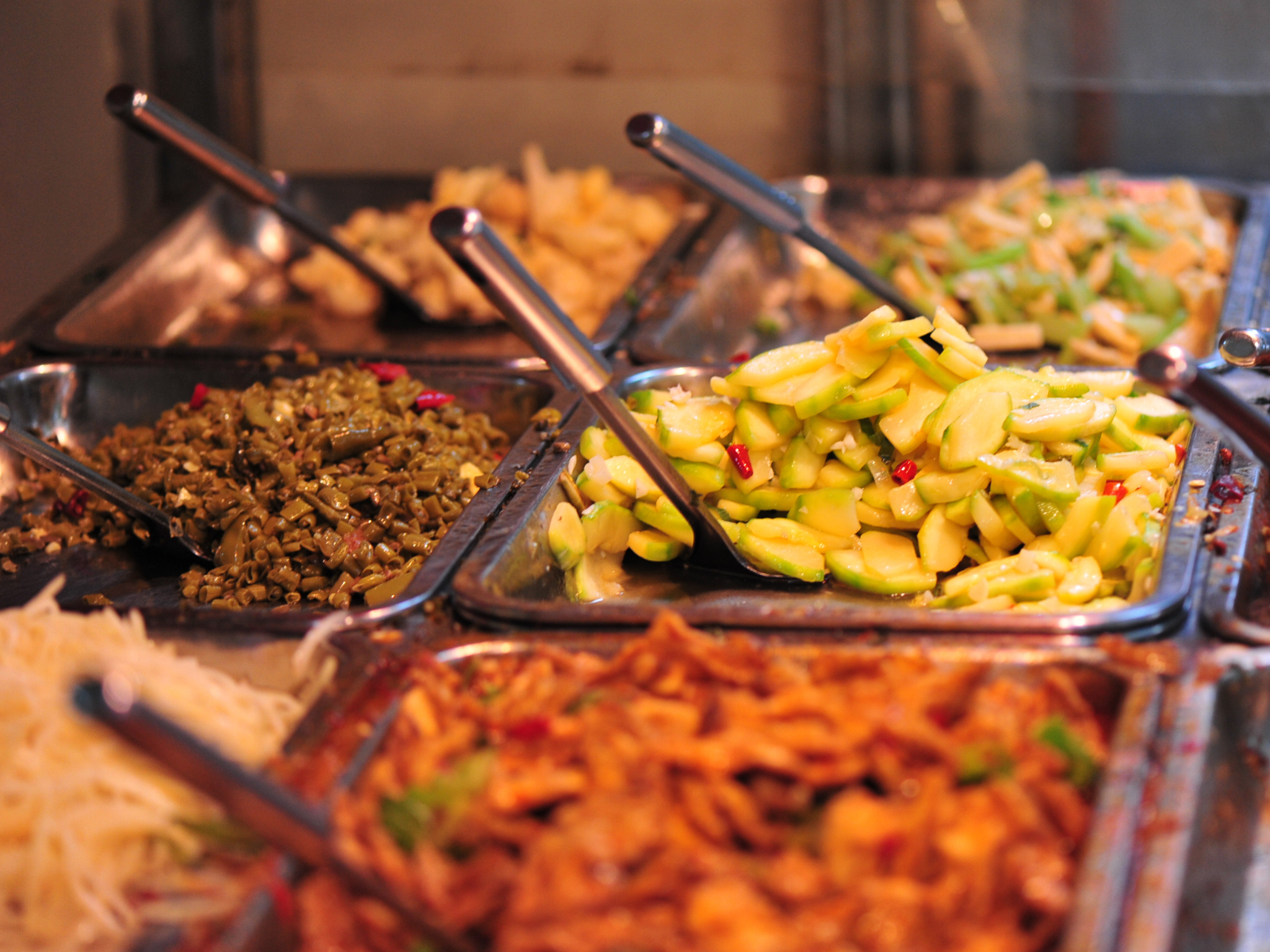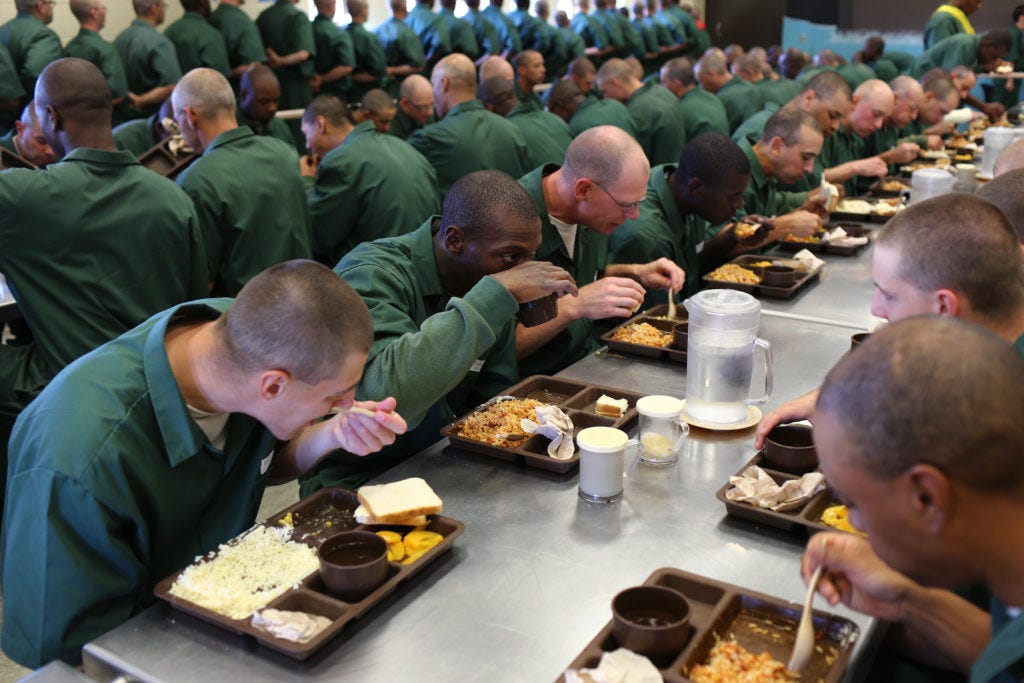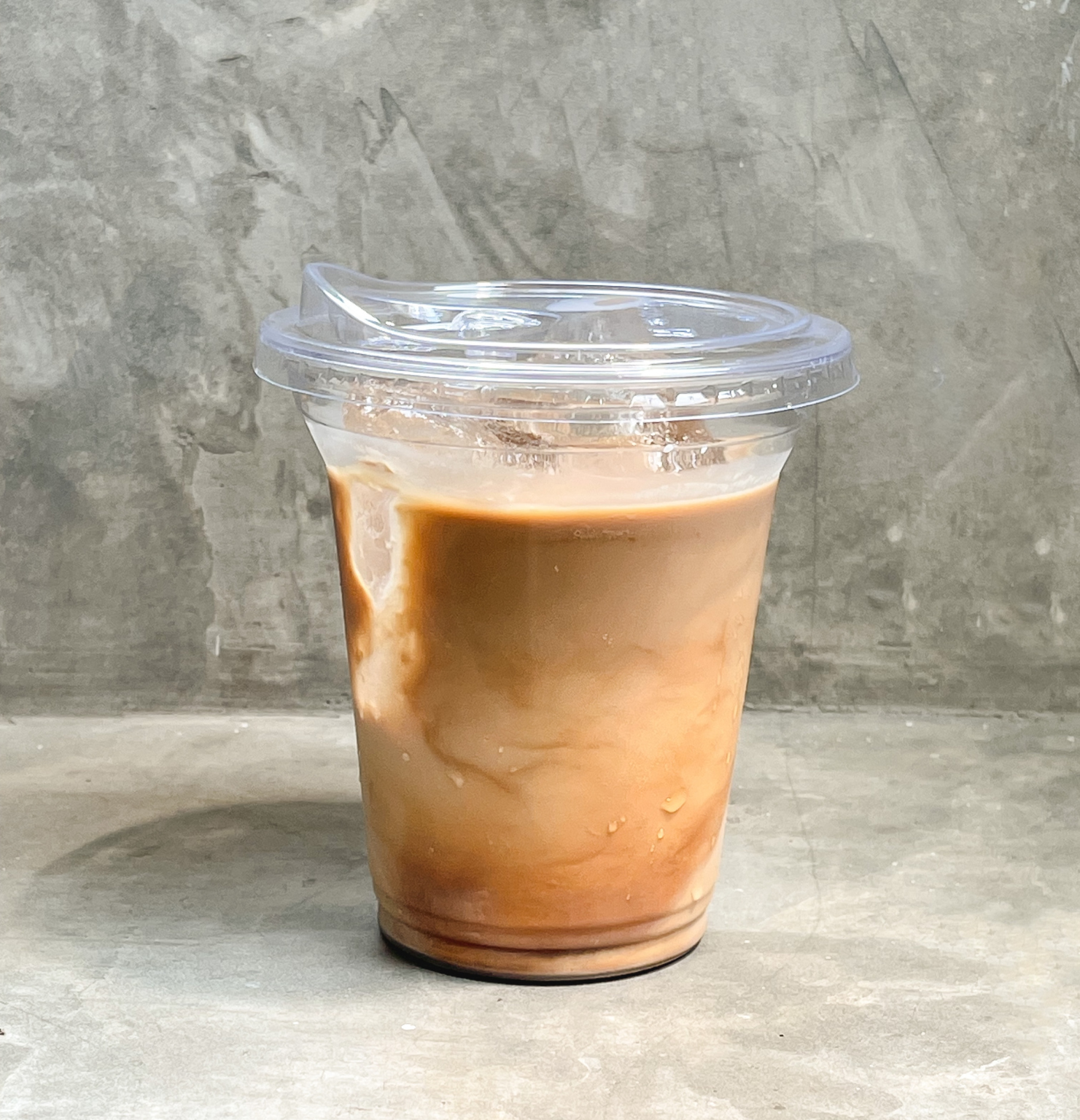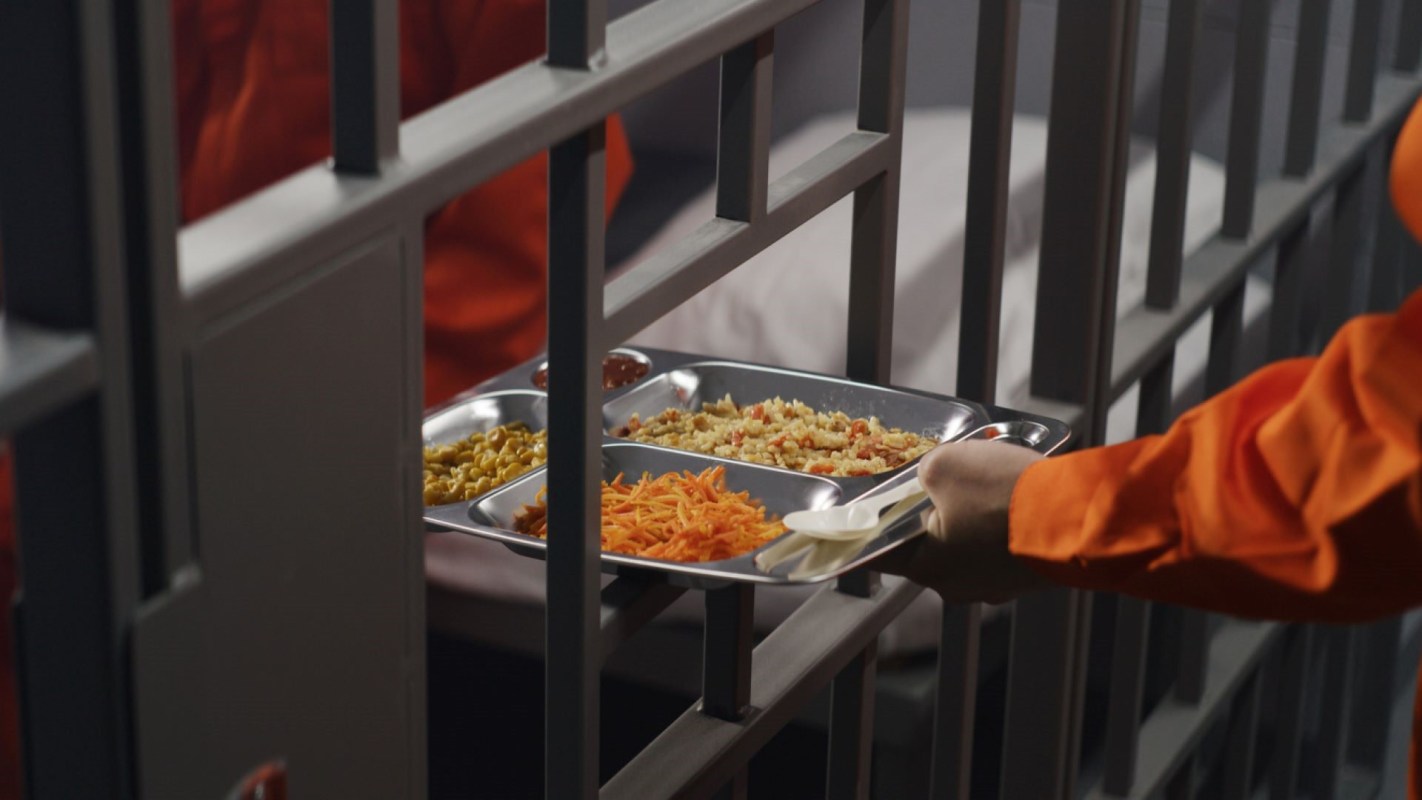
Over two dozen US Representatives have urged the Bureau of Prisons to offer more plant-based meat options to inmates in federal prisons.
A group of lawmakers in the US are calling for federal prisoners to be provided with more meatless options, highlighting better health outcomes for inmates and lower costs for prisons.
In a letter addressed to the Bureau of Prisons (BOP), 26 House Democrats from across the US – led by California Representatives Adam Schiff and Julia Brownley – are urging the federal agency to include more meatless foods for breakfast and ensure healthier vegetarian choices on its national menu.
Currently, the BOP’s Food Service Manual requires a “no-flesh” (meat-free) option at both noon and evening meals, but the policymakers – including Alexandra Ocasio-Cortez, Jamie Raskin, Jamaal Bowman and Jan Schakowsky – believe further action to support plant-forward dining options could “improve inmate health, lower dining costs, and better meet the diverse dietary needs of inmates”.
“Expanding access to plant-based dining options at all mealtimes will give inmates meaningful options through which they can exert control over their own health,” said Madeline Bennett, a food system and nutrition policy analyst at public health non-profit Balanced.
“Though plant-based meals are no panacea, inmates’ having consistent access to such options would be an impactful corrective to the current insufficiencies of federal prison food service,” she added.
The letter was supported by Balanced, climate NGO Friends of the Earth, food policy non-profit Food Solutions Action, and health organisation the Physicians Committee for Responsible Medicine (PCRM).
Vegan options lead to ‘better health outcomes’ for inmates

Health is a major focus in the letter, speaking to national trends. A 2024 survey by the International Food Information Council found that 55% of Americans eat meat-free diets out of health concerns. And a similar poll by 84.51° in May revealed that health is the most important driver of plant-based meat consumption in the US.
“Expanding access to plant-based options is a pathway to better health outcomes for inmates. As you know, federal prisons house inmates who suffer from chronic and diet-related health conditions at or above the rates among age-, race-, and sex-matched populations within the general public,” the letter reads.
“However, inmates have far lower access to both preventive lifestyle measures and pharmacological treatments while in prison, which together contribute to excess mortality from nearly all major causes of death in the years following their release.”
The Representatives cite a 2016 government survey that found 33% of federal prisoners have a chronic health condition. “Consuming meals focused on plant-based foods offers nutritional and health benefits, as they contain less saturated fat and sodium than animal products, are higher in dietary fibre, and do not contribute to non-communicable diseases like heart disease and type 2 diabetes,” the lawmakers write in what is a strong endorsement of vegan diets.
“Inmates in federal prisons have little to no control over their diets and therefore diminished agency to make positive health changes – even though they suffer the same or higher rates of diet-related diseases as the non-incarcerated,” explained Bennett.
“Providing plant-based meals in prisons is the prescription for helping inmates prevent and treat diet-related diseases like diabetes and heart disease,” added PCRM Neal Barnard.
Religious and dietary inclusivity with plant-based food

There’s a focus on the need to better meet religious requirements, allergies, and food intolerances in prisons. The lawmakers note how “plant-based dining options are one of the few cuisines that will consistently meet” the dietary requirements of inmates following a Halal or Kosher diet.
Meanwhile, according to the National Institutes of Health, 95% of Asian Americans, 60-80% of African Americans, 80-100% of Indian Americans, and 50-80% of Hispanic people in the US are lactose intolerant, and plant-based options could better accommodate their needs.
“Given the extent to which these groups are overrepresented among inmate populations, BOP could take an important step forward,” the letter reads.
Vegan diets could further offer healthier choices to people suffering from an emerging disease called Alpha-Gal Syndrome. Associated with allergic reactions to beef and pork consumption, this now affects nearly half a million Americans.
Vegan meals lower prison food costs

It’s just not inmates who would benefit from more plant-based food. These meals could be cost-effective for prisons themselves too.
Taking a leaf out of the healthcare sector’s “forward-thinking” playbook, the Representatives cite an analysis by plant-based advocacy organisation Greener by Default. The non-profit assessed data based on a hospital with 350 beds and 5,000 staff members and found that moving to a ‘plant-based by default’ (where vegan options are the norm, not the alternative) would reduce food costs for patients by $0.75 per meal over six months, and $0.65 over a five-year period.
“While this calculation reflects the direct savings to the hospital’s food programme, it does not include more savings that in the context of a prison could relate to health improvements, behavioural incident reduction, less need for costly healthcare interventions, etc.,” the policymakers point out.
As a successful example, they add that upon adopting a default plant-based approach, the New York Health + Hospital saw cost savings of 59% per tray, with satisfaction rates among patients above 90%. New York, California and Maryland have all considered or adopted legislation that calls on prisons to increase plant-based options.
The Representatives requested information from the BOP to better understand its food policy and how they can support it. This includes questions about the inclusion rates of plant-based meals, the cost difference between animal-derived and vegan foods, whether inmates need to have a dietary restriction on file, and the barriers that prevent the BOP from serving more plant-based food.
They also say they’d support having the Food Service Manual encourage federal prisons to use plant-based proteins and set requirements to meet religious dietary needs.
“Every person deserves the right to choose a healthy, culturally appropriate, plant-based meal – including those who are incarcerated in federal prisons,” said Lisa Gonzalez, senior food and climate policy analyst at Friends of the Earth.
The post US House Reps Write to Bureau of Prisons to Increase Plant-Based Meals for Inmates appeared first on Green Queen.
This post was originally published on Green Queen.